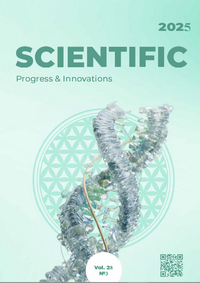Protective efficacy of ethanolic Moringa oleifera leaf extract against aluminum chloride-induced toxicity in male rats
DOI:
https://doi.org/10.31210/spi2025.28.03.48Keywords:
Moringa oleifera, aluminum chloride, hepatotoxicity, nephrotoxicity, antioxidant enzymes, oxidative stress, lipid profileAbstract
Aluminum (Al) is the third most abundant element in the Earth crust and constitutes about 8 % of the total mineral components. Aluminum chloride (AlCl3) is widely spread in the environment and has no known biological function. Chronic exposure to aluminum chloride (AlCl3) induces systemic toxicity, primarily through oxidative stress, neuroinflammation, hepatotoxicity, and dyslipidemia. Conversely, ethanolic leaf extract of Moringa oleifera (MOE), which is also characterized by a high concentration of polyphenols and flavonoid, has proven to possess effective antioxidant properties and is a promising systemic protector. The current study is aimed at determining the protective effect of the therapeutic dose of ethanolic Moringa extract against the toxicity caused by aluminum chloride (AlCl3) in albino male rats (Rattus rattus). Forty albino males were divided into four groups and put through a successive 28 days exposure regimen. Orally gavage fed with aluminum chloride at the level of 100 mg/kg/body weight induced toxicity. Ethanolic Moringa extract at therapeutic dose of 300 mg/kg/body weight was applied on the protection group 1 hour following the administration of aluminum chloride. The main indicators were serum hepatic enzymes (ALT, AST, ALP), lipid status (TC, TG, LDL, HDL), oxidative-stress-responses (SOD, NO, MDA) and renal functioning (urea, creatinine). Aluminum chloride was given and prior to this there was notable hepatic enzyme activity (ALT, AST, and ALP) and dyslipidemia, manifested by increased TC, TG, and LDL, and by an equivalent decrease in HDL. Moringa extract (300 mg/kg) was found to greatly reduce these systemic toxic manifestations. In cerebral tissue, the extract provided neuroprotection through increasing antioxidant capacity – as indicated by higher levels of SOD activity and by eliminating nitrative stress. The ethanolic extract of Moringa oleifera leaves gives extensive and powerful protection against both systemic and neurotoxic effects caused by 100 mg/kg of aluminum chloride when administered at a 300 mg/kg dose. This protective effect can be primarily explained by its high antioxidant activity and by its capability to regulate the action of inflammatory and lipid-regulating activities, which highlights its possible use as a prophylaxis in nutrition.
Downloads
Published
How to Cite
Issue
Section
License
Copyright (c) 2025 Scientific Progress & Innovations

This work is licensed under a Creative Commons Attribution 4.0 International License.

 Creative Commons Attribution 4.0 International Licens
Creative Commons Attribution 4.0 International Licens